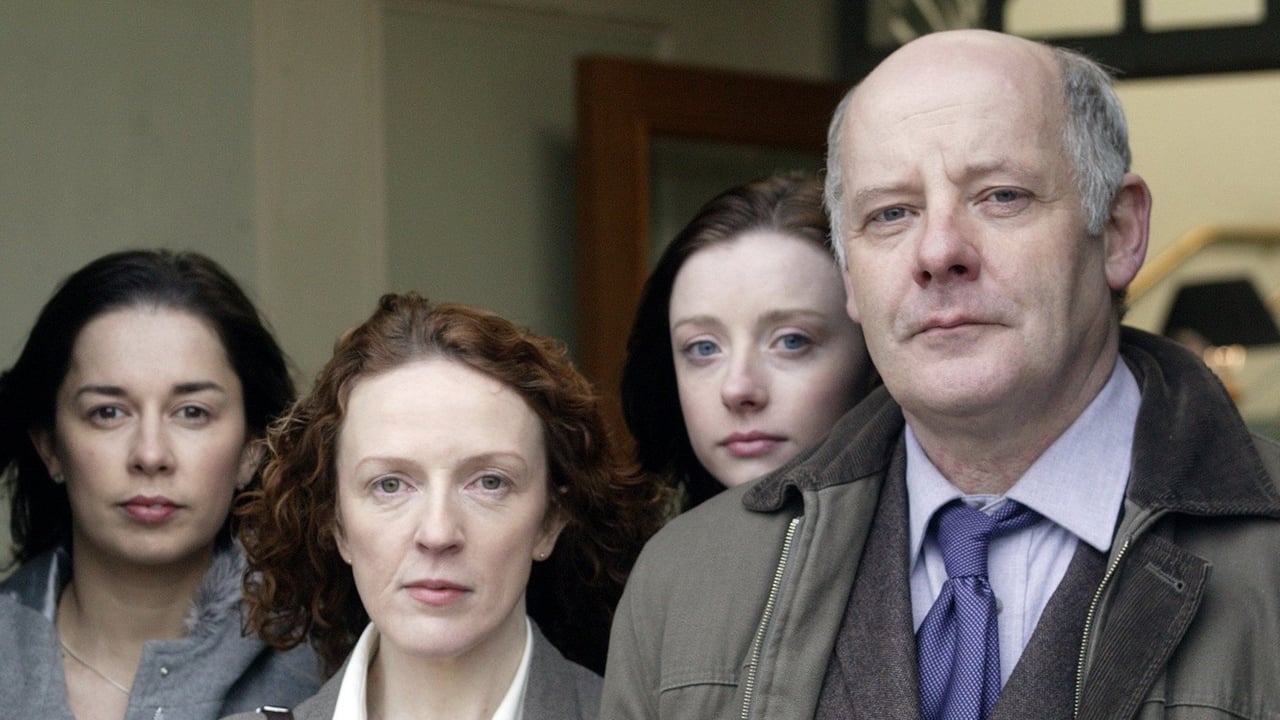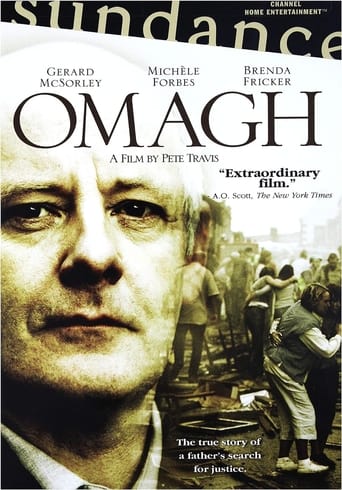

Memorable, crazy movie
... View MorePretty good movie overall. First half was nothing special but it got better as it went along.
... View MoreEach character in this movie — down to the smallest one — is an individual rather than a type, prone to spontaneous changes of mood and sometimes amusing outbursts of pettiness or ill humor.
... View MoreGreat movie. Not sure what people expected but I found it highly entertaining.
... View MoreI imagine that for almost everyone in Northern Ireland, the title of this film acts as a plot summary as well because the bombing in 1998 of Northern Irish town Omagh is etched in the mind. The afternoon detonation in a bust market street claimed many, many civilian lives and left many more injured. This film covers the bombing and follows the aftermath through the experiences of Michael Gallagher, who lost his son and headed up the efforts of a civilian group looking for results and enquiries.By the very nature of the story the film starts very strong. The scenes where the crowds are moved away from the wrong area, essentially into the blast area sickeningly tense because we know what is coming. Indeed the immediate aftermath and the hunt for news is almost very moving and it reminded me instantly of how I felt when I heard the news of the attack. With this peak so early, the film has to work to keep things from feeling like they dip. Sadly, it doesn't manage it and the rest of the film doesn't engage as it should, nor does it inform or move. It is a shame but it is a bit messy in the telling – reflecting the sort of ongoing, lack of resolution that many murders have down the decades in Northern Ireland. The conclusion rests heavily on the police enquiry and, as such, it makes the film feel like it is putting the majority of the blame on the police rather than the terrorists who planted the bomb. This is not the case, but it is easy to see it that way with the second half of the film and the way it chooses to conclude as a story. This hurts it – not in terms of balance (although that is an issue) but just because it is part of the film not really having a handle on what it is doing once the aftermath moves from the immediate to the longer term.The cast are hard to fault though and certainly McSorley does great work in the lead. He captures the unassuming Ulsterman character well – someone recognisable as being one of the sort of people we have in this country (we have countless others but his character reminded me of several relatives). He emotes really well and it is just a shame the film did not use his character better than it did. The rest of the cast are secondary to him but mostly are solid and convincing. The direction is good but it is the writing where it falls down to the point where it can't recover. It doesn't really flow and the structure is part of the problem.Overall this is a film with an impacting opening 40 minutes, that easily moves and angers in the way the events themselves did. However as a film it doesn't seem to have a tight focus on where to go from there and as a result the story is messy and unclear, leaving the viewer with a memory of emotion amid the collection of scenes that follow. Can't fault the intent but the delivery is lacking.
... View MoreI am to young to remember the Omagh bombing but the film made you feel you were really their at the bombing and after.The movie is based on a real event when 29 innocent people died by a car bomb planted by the real I.R.A (Irish Republican Army) The film focuses on Michael Gallagher and his family who lost there 19 year old son Aiden in the bombing. This results in the rest of the family trying to fit in without Aiden but fail. They then join a support group hoping to bring the I.R.A to justice.Paul Greengrass(United 93,The Bourne Ultimatum) gives a fantastic script and Pete Travis does fantastic work in the direction and turns it into a movie that has you reaching for your handkerchiefs.It is very rare to see a cheap film with a small and unknown cast and even an unknown director and turn it into a fascinating and wonderful drama that couldn't be topped no matter how much Hollywood stars or money would be put in it was a rare but special treat with almost no mistakes. Omagh will be very hard to find in a DVD shop but once you see it all that work will be worth it.
... View MoreIn 1998 the so-called Real IRA (a split from the original IRA that didn't agree with the peace process in Northern Ireland) exploded a 200 kg bomb in one of the most crowded streets of the city of Omagh. More than 30 dead, hundreds of wounded people... No one were judged for those crimes. The politicians were afraid that the peace process might end and just "let it be"."Omagh" approaches to those facts from the point of view of the victims. The initial shock, the confusion, the anxiety... The first half hour of the movie is just hair-raising, and if you're a very sensitive person you should't see it. For the rest of you: the film is just superb, and it isn't gruesome at all. Pete Travis shows the facts as they were, but so carefully and with a style that makes the movie look like a documentary.The work of the actors is outstanding, for it's so hard to play that kind of characters (they're so emotional).*My rate: 8/10
... View MoreI do not believe I have ever seen a movie that more truthfully and compellingly captures tragedy than Pete Travis's Omagh.Omagh tells the story of the 1998 Real IRA bombing that killed 29 people in the city of Omagh, Northern Ireland, and the aftermath that followed. Yet what endears me to this film is that this could have been any town, any family, any tragedy. The film is completely without frills. It is one of the few films I've seen that does not romanticize death and tragedy. It has no towering musical score telling your emotions where to go (there is no score at all, actually), no dramatic final words, no sanguine epitaphs. Instead, Travis shows us what the camera usually leaves out -- the dirty dishes after the funeral party has left your house, the ubiquitous reporters asking for pictures of the deceased, the kind but nuisance of a neighbor offering help when you just want to be left alone.The technical aspects of the film were all very well done, as were the actors' performances. Everything about the film makes you feel as though you are looking through a window into what really happened at Omagh, rather than watching an screen adaptation of the events. Omagh is well worth a see.
... View More